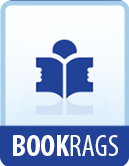[Footnote A: Wordsworth went from York to Cambridge, entering it by the coach road from the north-west. This was doubtless the road which now leads to the city from Girton. “The long-roofed chapel of King’s College” must have been seen from that road.—Ed.]
[Footnote B: The Hoop Inn still exists, not now so famous as in the end of last century.—Ed.]
[Footnote C: He entered St. John’s College in October 1787. His rooms in the College were unknown to the officials a dozen years ago, although they are pretty clearly indicated by Wordsworth in this passage. They were in the first of the three courts of St. John’s; they were above the College kitchens; and from the window of his bedroom he could look into the antechapel of Trinity, with its statue of Newton. They have been recently removed in connection with sundry improvements in the college kitchen. For details, see the ‘Life of Wordsworth’ which will follow this edition of his Works.—Ed.]
[Footnote D: A village two and a half miles south of Cambridge.
“There are still some remains of
the mill here celebrated by Chaucer
in his Reve’s Tale.”
(Lewis’ ‘Topographical Dictionary of England’, vol. iv. p. 390.)—Ed.]
[Footnote E: S. T. C., who entered Cambridge when Wordsworth left it.—Ed.]
[Footnote F: On certain days a surplice is worn, instead of a gown, by the undergraduates.—Ed.]
[Footnote G: Compare the poem ‘Floating Island’, by Dorothy Wordsworth.—Ed.]
[Footnote H: The following extract from a letter of Dorothy Wordsworth’s illustrates the above and other passages of this book. It was written from Forncett, on the 26th of June, 1791. She is speaking of her two brothers, William and Christopher. Of Christopher she says:
“His abilities, though not so great, perhaps, as his brother’s, may be of more use to him, as he has not fixed his mind upon any particular species of reading or conceived an aversion to any. He is not fond of mathematics, but has resolution sufficient to study them; because it will be impossible for him to obtain a fellowship without them. William lost the chance, indeed the certainty, of a fellowship, by not combating his inclinations. He gave way to his natural dislike to studies so dry as many parts of the mathematics, consequently could not succeed in Cambridge. He reads Italian, Spanish, French, Greek, Latin, and English; but never opens a mathematical book.... Do not think from what I have said that he reads not at all; for he does read a great deal, and not only poetry, in these languages he is acquainted with, but History also,” etc. etc.
Ed.]
[Footnote I: ‘Date obolum Belisario’. Belisarius, a general of the Emperor Justinian’s, died 564 A.D. The story of his begging charity is probably a legend, but the “begging scholar” was common in Christendom throughout the Middle Ages, and was met with in the last century.—Ed.]




